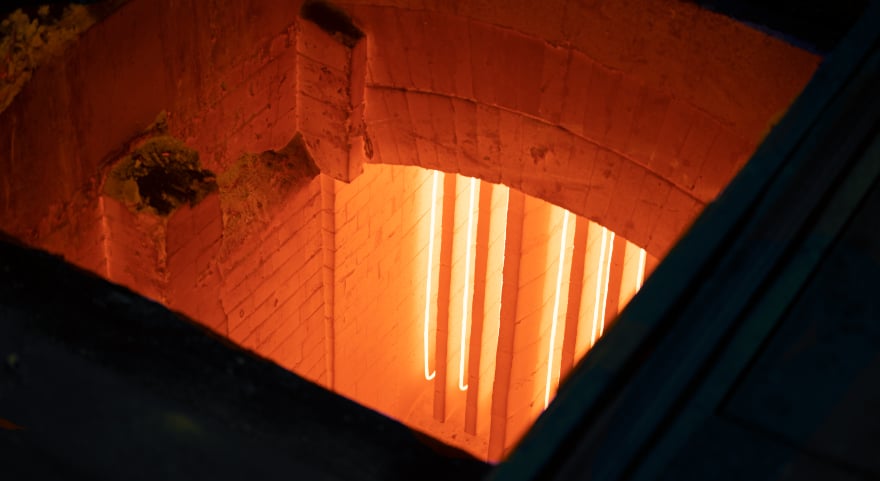 Pit furnace for ingot heating with Kanthal® Super electric heating elements.
Pit furnace for ingot heating with Kanthal® Super electric heating elements.
Steel remains one of the world’s most useful and in-demand commodities, yet its production processes are energy-intensive and produce vast amounts of carbon dioxide (CO2). On a global scale, the steel and iron industries account for some 7 percent of CO2 emissions. Particularly emission-intensive are heating processes, which traditionally are fueled by gas or oil. But as Kanthal has proved, electric heating is a viable alternative.
“If the industry is to achieve its goal of fossil-free steel, it needs to stop burning fossil fuels in its heating processes – and electrification is the most promising way of achieving this,” says Anders Björklund, President of Kanthal.
 Anders Björklund, President of KanthalThe purpose of the campaign is to raise awareness of electrification and the benefits electric heating can bring to the various processes within steel manufacturing, including continuous annealing and galvanizing lines, roller hearth furnaces and pit furnaces. Kanthal has already successfully helped numerous customers make the transition to electric heating. It also uses electricity to operate its own heating processes at its plant in Hallstahammar, Sweden, providing further proof that electric heating can meet the demands of the steel industry.
Anders Björklund, President of KanthalThe purpose of the campaign is to raise awareness of electrification and the benefits electric heating can bring to the various processes within steel manufacturing, including continuous annealing and galvanizing lines, roller hearth furnaces and pit furnaces. Kanthal has already successfully helped numerous customers make the transition to electric heating. It also uses electricity to operate its own heating processes at its plant in Hallstahammar, Sweden, providing further proof that electric heating can meet the demands of the steel industry.
“There are many misconceptions about electric heating – that it’s not able to reach certain temperatures, for instance,” says Björklund. “But with our technology, you can electrify any heating process in steelmaking. As we have proved, Kanthal has the technology, the thermal expertise, the resources and the global footprint to electrify all the highly energy-intensive heating processes.”
In addition to eliminating CO2 and NOx emissions and improving thermal efficiency, electric heating also provides precise temperature control. The reduction of noise and exhaust gases means a cleaner, quieter production process and work environment.
For questions, please contact Patrik Johansson, Global Marketing Communications Manager, Kanthal, at patrik.a.johansson@kanthal.com or +46 (0)70 616 2726